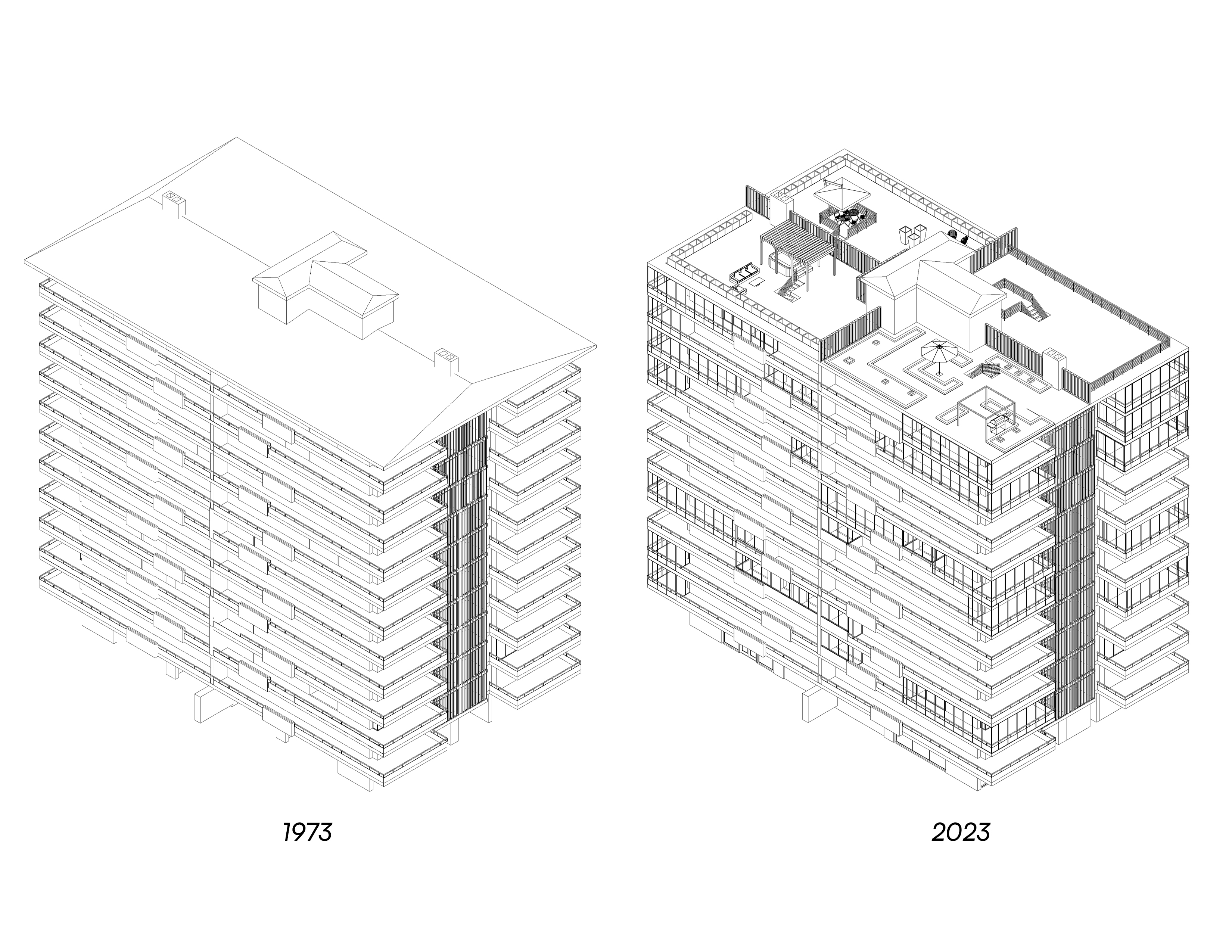Facilities as a project opportunity. Rethinking high-rise real estate housing based on case studies of the FORK production plant and the Los Abetos residential building.
Main Article Content
Abstract
The construction industry accounts for approximately 35% of global waste generation. To address this issue, various strategies in architecture have been proposed to reduce waste through innovative construction methodologies. One promising approach is to integrate the principles of the circular economy into architecture, leading to buildings with lower maintenance costs and greater resilience to the challenges posed by the current climate crisis.
The circular economy can be applied to housing at different stages of a project, particularly through the opportunities provided by building facilities. This includes their accessibility, adaptability, and programmatic flexibility. Traditionally, building facilities have been concealed within walls and slabs. However, it is suggested that well-designed facilities can contribute to the construction of long-lasting and efficient buildings.
This article is structured in four parts. The first part analyzes the role of facilities in the architecture-related industry and examines the ongoing discussion on this topic. The second part provides current and local examples that propose an understanding of facilities from the perspective of the circular economy. The third part focuses on studying the traditional way in which these facilities have been conceived and designed in our country, which helps to understand the characteristics and challenges of this construction method. Finally, the fourth part demonstrates that the inclusion of well-designed facilities in the architectural project can transform disposable architecture into durable architecture and harness the spatial potential of these elements to give a project its own identity.
Article Details

This work is licensed under a Creative Commons Attribution-NonCommercial-NoDerivatives 4.0 International License.

